Oxford, Mississippi
On view November 6-8, 2023
The University of Mississippi
School of Journalism and New Media
Farley Hall, First Floor
555 Grove Loop
Oxford, MS 38655
Exhibition hours: Open Mon., 12:00 - 8:00 pm; Tues. and Wed. 8:00 am - 5:00 pm
Monday, Nov. 6 at 7:00 pm: Panel Discussion and Reception - Overby Auditorium
Exhibition curators Susan Stellin and Graham MacIndoe, contributor Josh Meltzer, Dr. Nick McAfee, and Carol Jane Mckaskle will discuss how our understanding of addiction, treatment, and recovery is shaped by news, entertainment, and social media; evolving substance use patterns and overdose risks; and what’s available for students and other community members if substance use or mental health challenges become a concern.
Tuesday, Nov. 7: Susan, Graham, and Josh will be interviewed by Dr. Meagen Rosenthal and Alexis Lee for The Mayo Lab Podcast. A link to the recording will be posted after the episode is released.
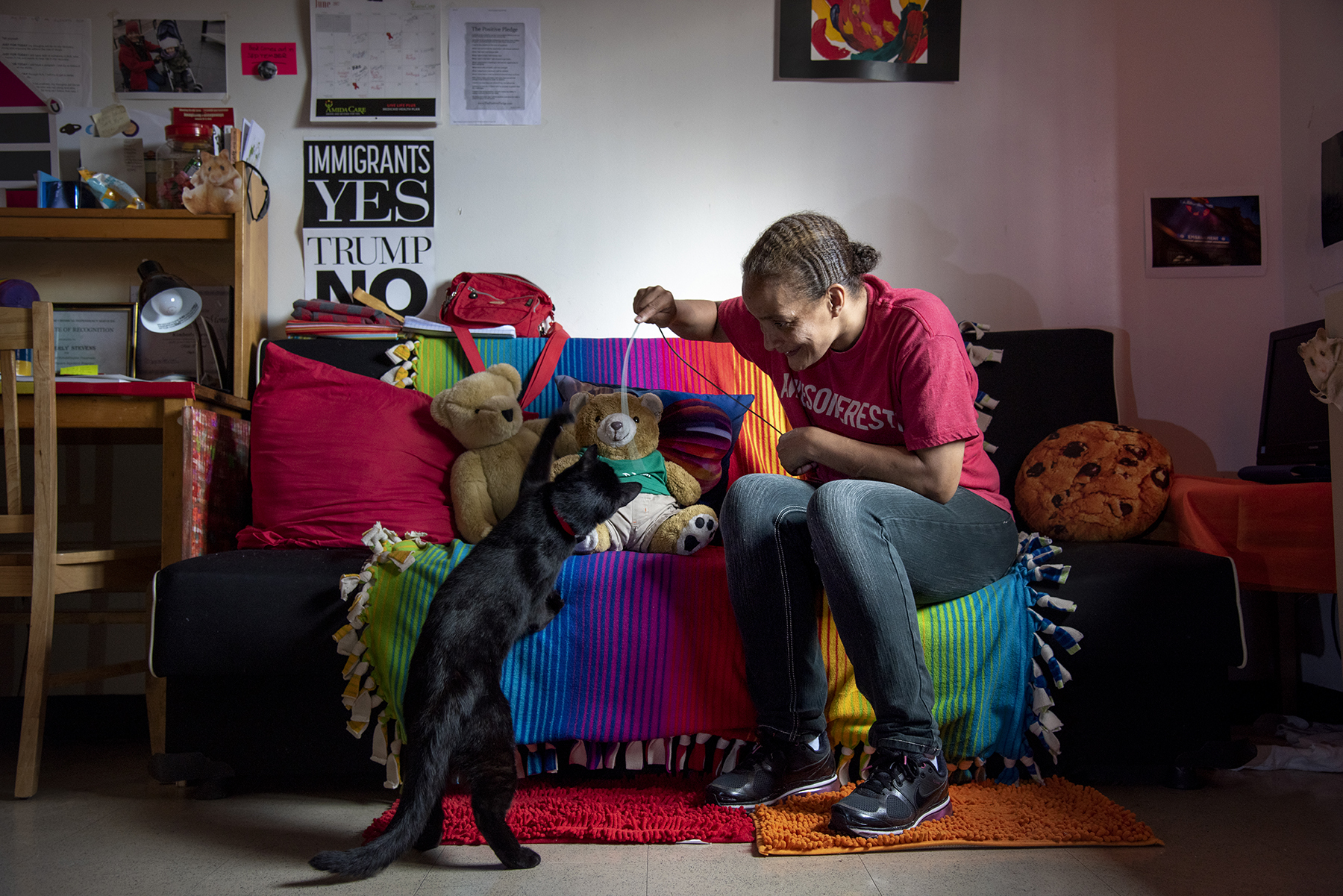
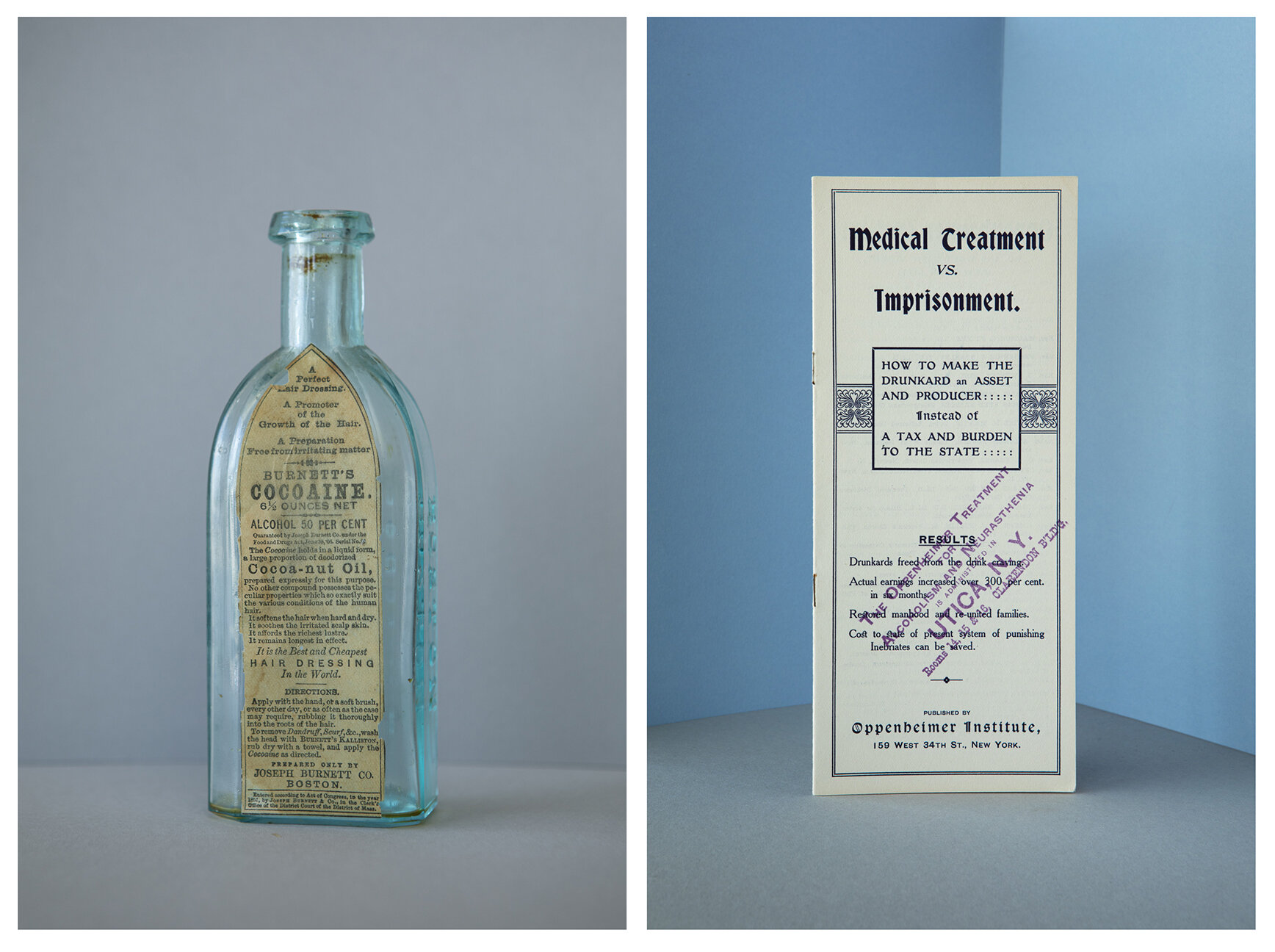
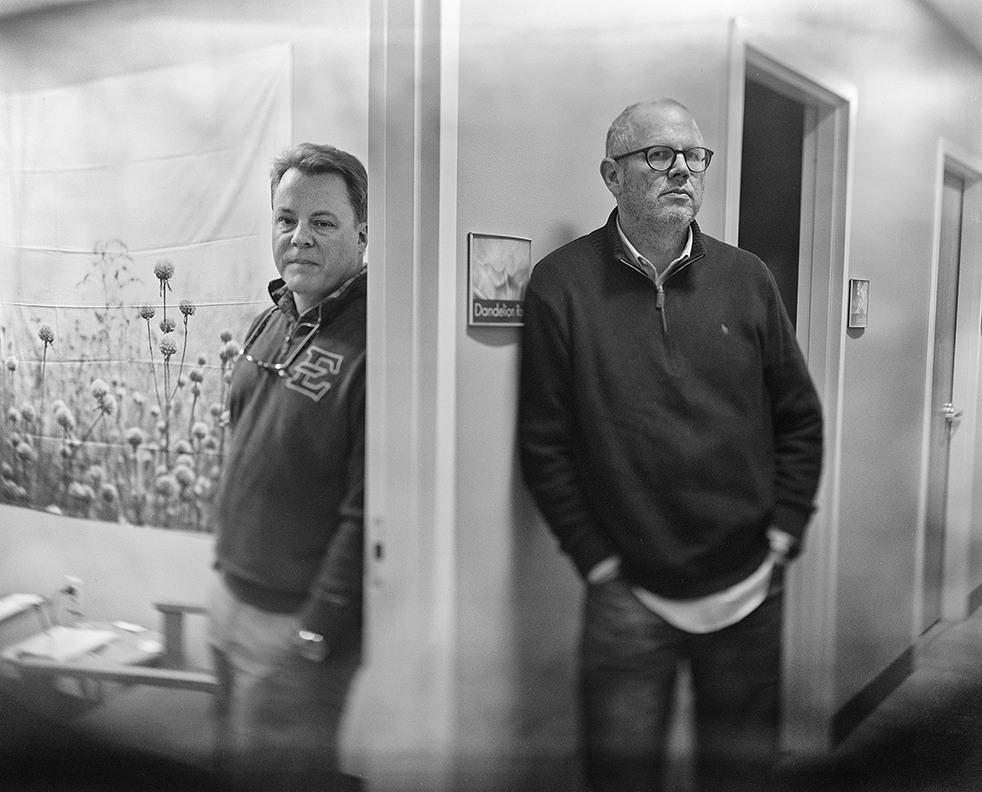
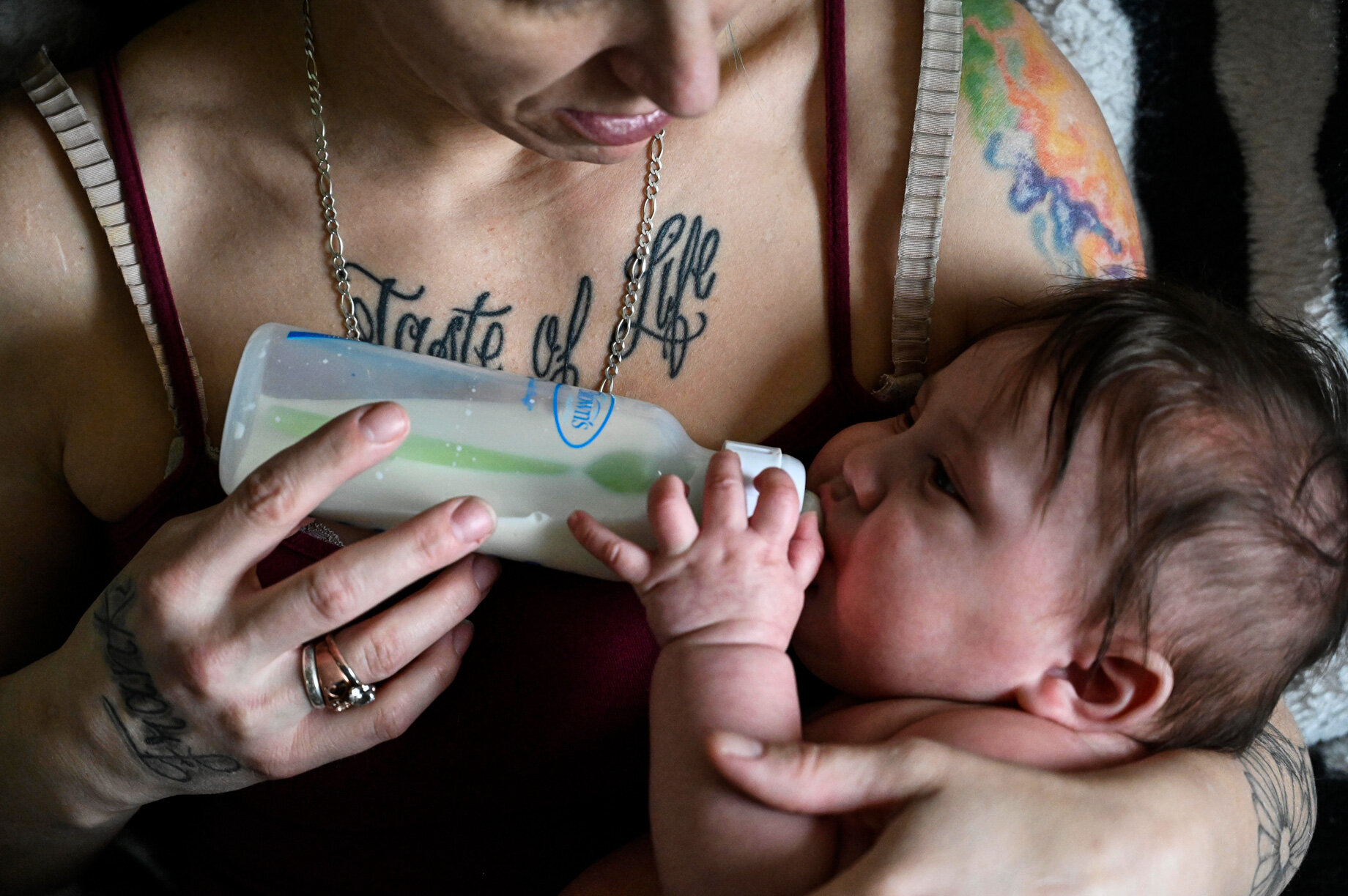
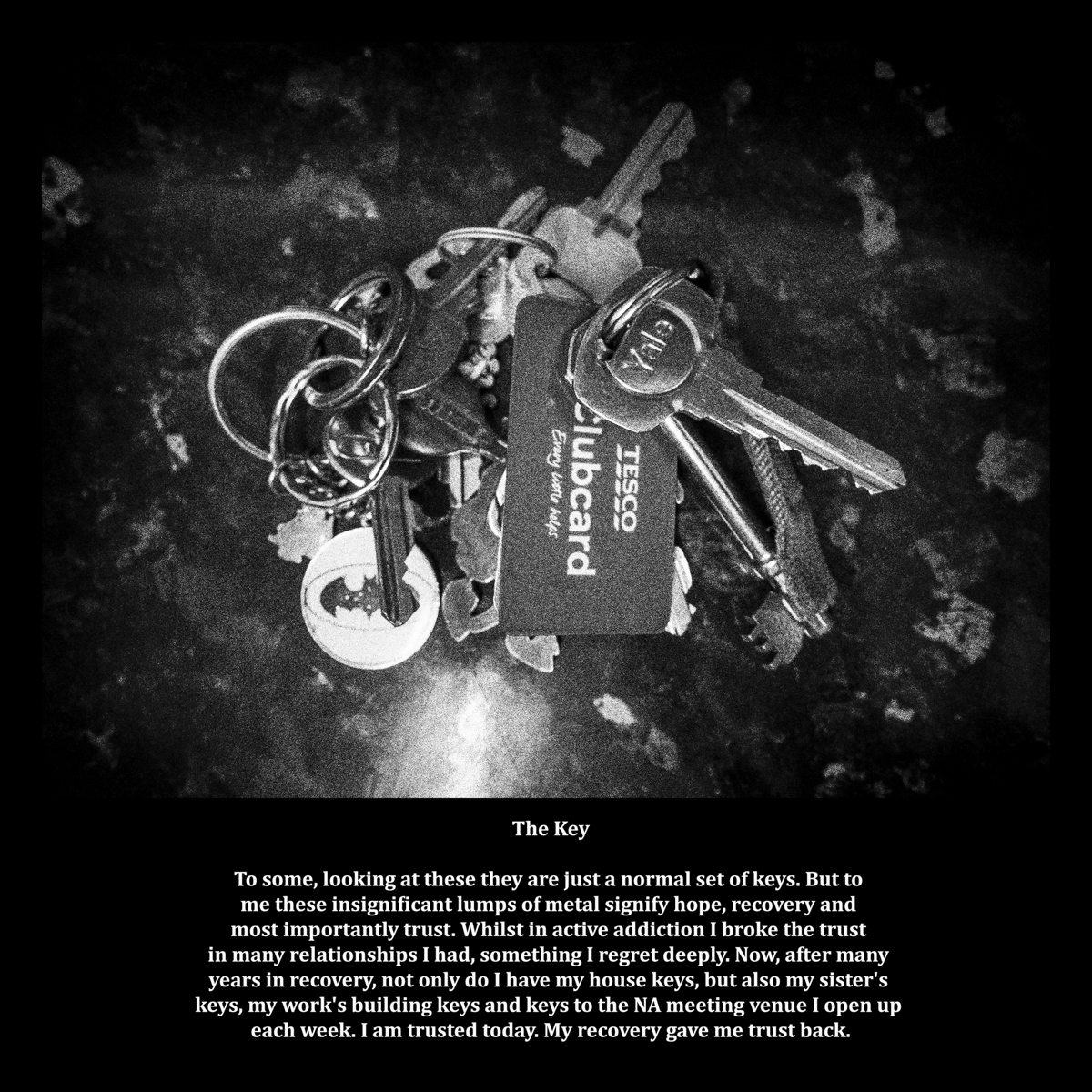
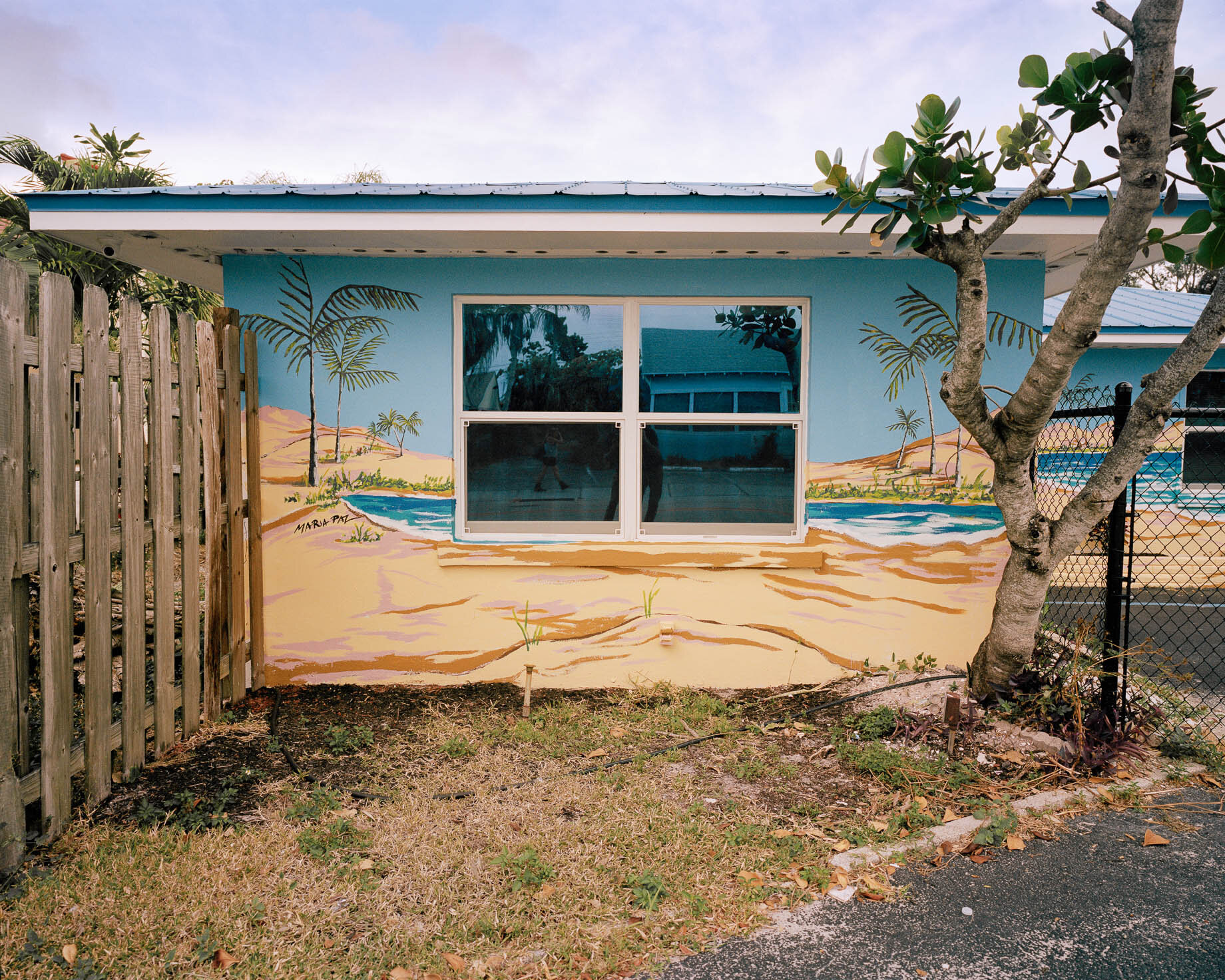
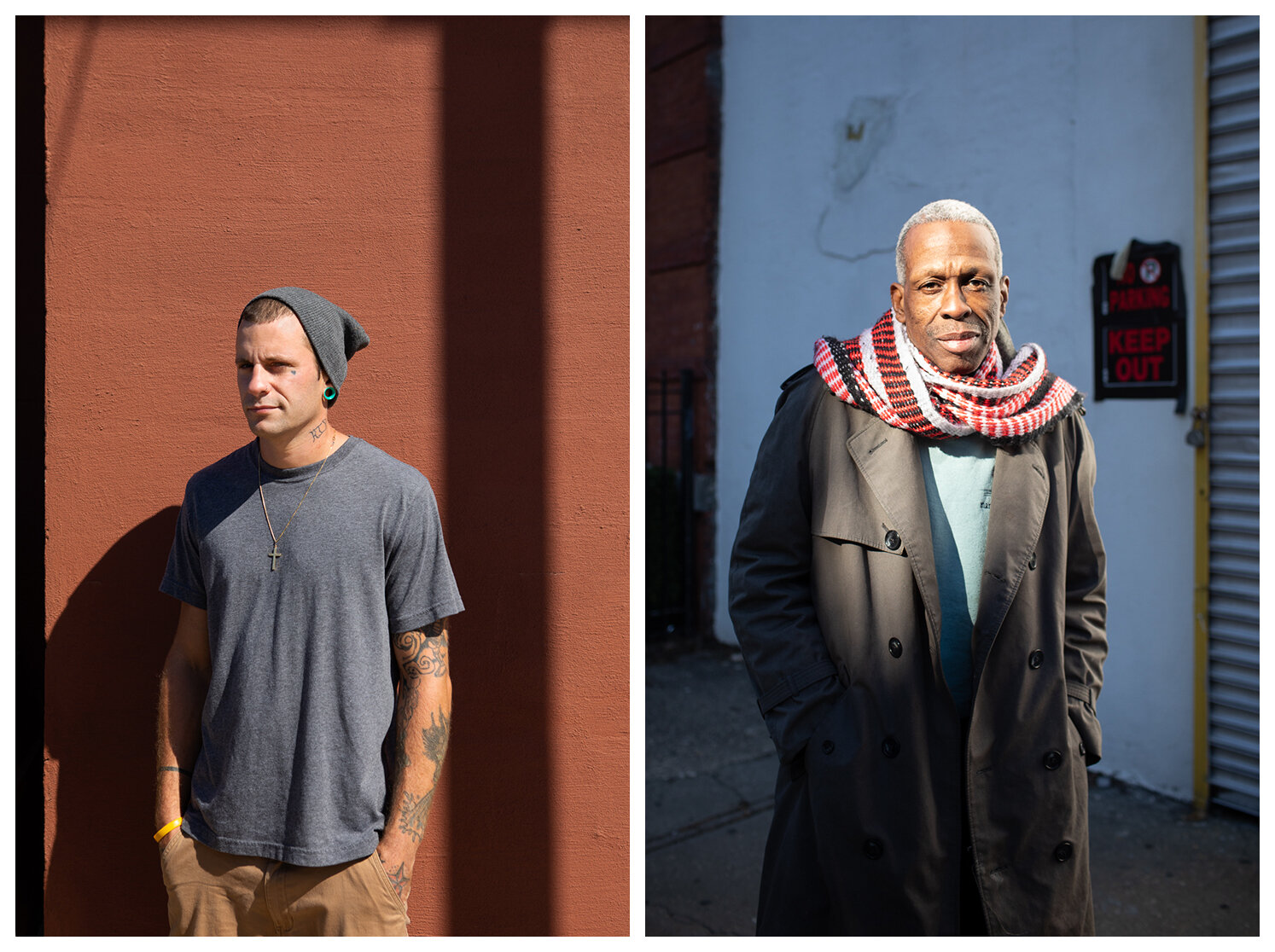
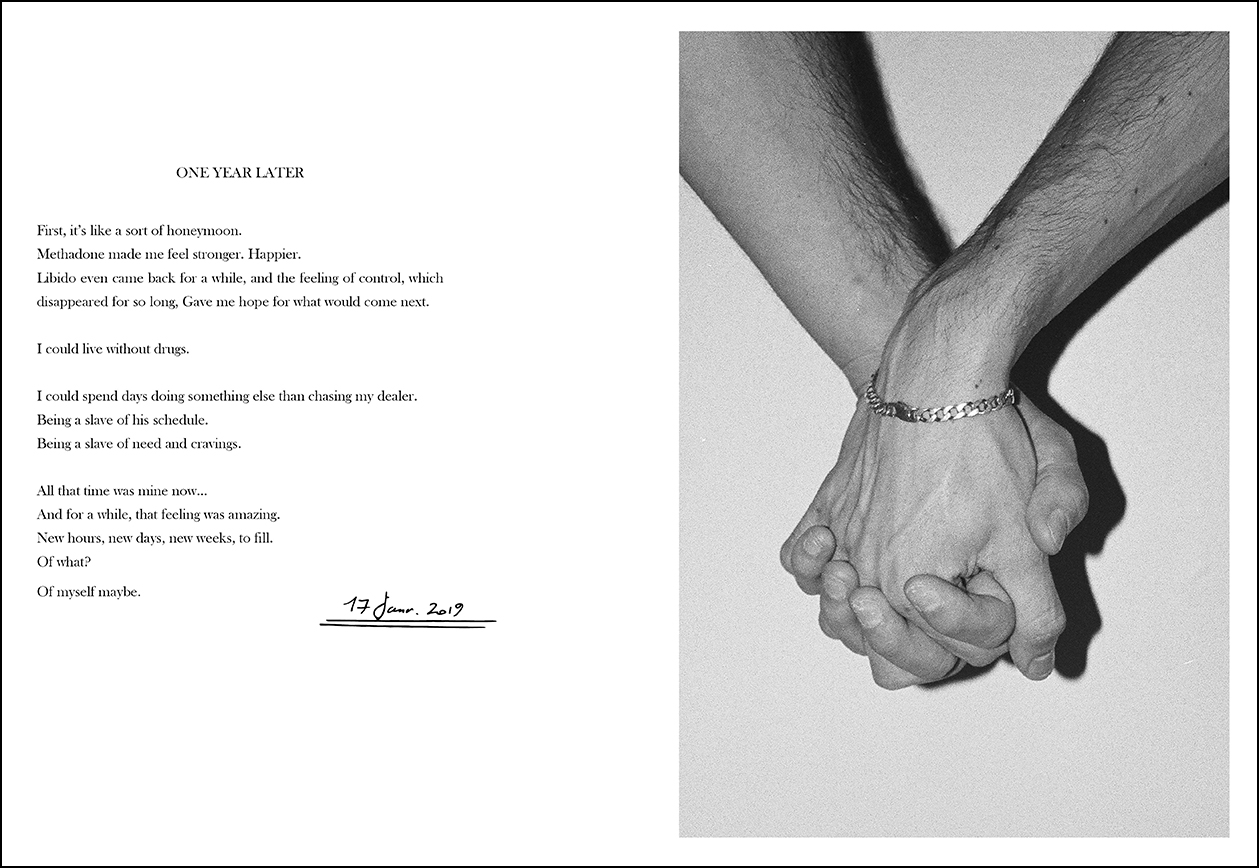
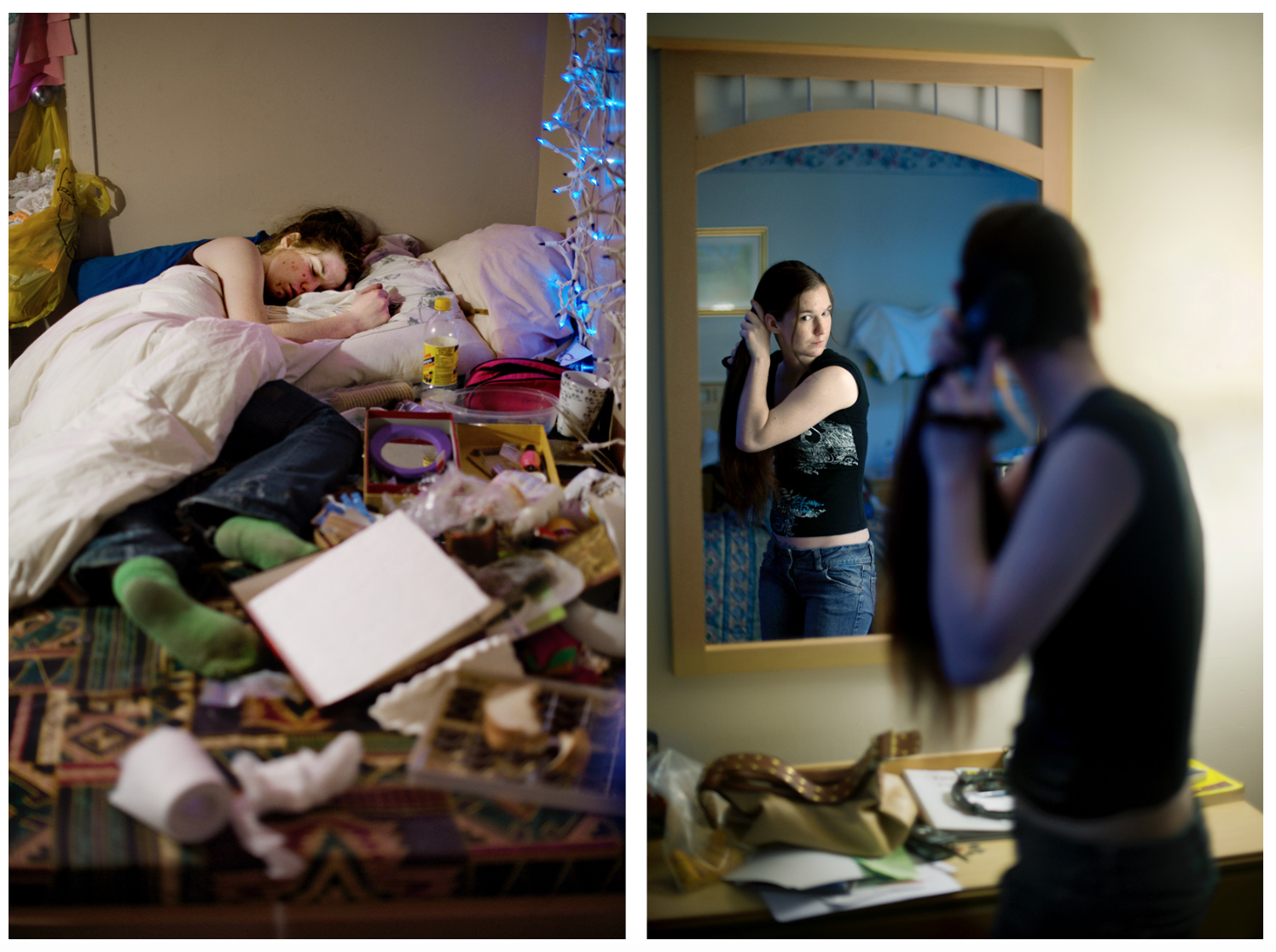
EXHIBITION OVERVIEW
There are millions of people in the U.S. who have successfully resolved a problem with drugs or alcohol, but we rarely see or hear their stories compared to depictions of addiction in media, art, music, and film. Although not everyone identifies as being in recovery, and many people can’t publicly acknowledge their past because of stigma or the consequences of admitting illegal drug use, a growing movement is working to offer examples of success and hope to those still struggling with addiction.
The goal of this exhibit is not just to show that recovery is possible, but also to highlight some of the ways people have rebuilt their lives: reconnecting with their families, finding work and stable housing, and developing meaningful relationships with partners, peers, and others who offer support. It also features some of the treatment providers and harm reduction services that many people rely on, often at times when they feel isolated and overwhelmed. Recovery is rarely a solo journey and it sometimes involves setbacks and hurdles, but the more we talk about it, share ideas, and embrace different paths, the more people will find their way.
Beyond Addiction: Reframing Recovery debuted at the Aronson Galleries in New York City in 2019 and was on view at RIT’s City Art Space in downtown Rochester from Nov. 5, 2020 through Feb. 21, 2021.
CURATED BY GRAHAM MACINDOE AND SUSAN STELLIN
Graham MacIndoe, MFA is a photographer and part-time associate professor at Parsons and Susan Stellin, MPH is a health researcher, educator, and communications consultant based in New York City. They have collaborated on various projects combining interviews and photography, including exhibitions, talks, and a memoir (Chancers) documenting Graham’s addiction, incarceration, and recovery. Before returning to school for a public health degree, Susan was a regular contributor to The New York Times for many years and taught Ethics and the History of Journalism at The New School.
Josh Meltzer, MA is photographer and Associate Professor of photojournalism at RIT who helped bring Reframing Recovery to Rochester, NY and Oxford, MS. Josh made the portraits for the books Dopesick: Dealers, Doctors and the Drug Company that Addicted America and Raising Lazarus, by Beth Macy, which are part of this show.
CONTRIBUTING ARTISTS
Graham MacIndoe and Susan Stellin: Re-Entry & Recovery
Portraits and interviews with people navigating life after addiction and involvement with the criminal justice system, from a larger series documenting stories of recovery.
Nina Berman: An autobiography of Miss Wish
A multi-dimensional collaborative work focusing on the story of one woman and the intersection of sexual trauma, mental illness, addiction, and recovery.
Cheyenne Boone: Taste of Life
A series examining the transitional and vulnerable period of time during recovery from addiction, as well as its impact on family members and relationship dynamics.
Michael Dillow: Getting Better
An intimate portrayal of those in early recovery and the ways for-profit treatment providers and sober living residences have blended into South Florida’s transient landscape.
Yannick Fornacciari: Heroin Days
Images and text juxtaposing Yannick's first day on methadone with how he felt after a year of treatment.
Tony Fouhse: Live Through This
A series of photos of a young woman Tony met who asked for help getting into a rehabilitation program, which enabled her to escape life on the street.
Graham MacIndoe: Illinois Addiction Studies Archive
Photographs of artifacts, books, and memorabilia documenting the history of addiction treatment in America, many donated by research scientist William L. White.
Josh Meltzer: Dopesick—Agents of Change
Portraits of treatment providers, healthcare workers, activists, and counselors shot for Dopesick: Dealers, Doctors, and the Drug Company that Addicted America, by Beth Macy.
Neil Sneddon: Developing Recovery
Photos taken by clients Neil asked to document the people, places, and things they identified as meaningful for their recovery.
Reframing Recovery in Oxford
The William Magee Institute for Student Wellbeing, the University of Mississippi School of Journalism and New Media, and The Thomas Hayes Mayo Lab invited exhibition curators Susan Stellin and Graham MacIndoe and contributor Josh Meltzer to bring artwork from Beyond Addiction: Reframing Recovery to Oxford, MS. Our emphasis is on collaborative storytelling, working with participants to share their stories and seeking out artists who have personal or family experience with this topic. We recognize and support the many different pathways people take to recover from substance use and mental health challenges, aiming to spark conversations that reduce the stigma, isolation, and shame that can prevent people from seeking help.
Thanks to: Dr. Meagen Rosenthal, Alexis Lee, Andrea Hickerson, and MacKenzie Ross at Ole Miss; Josh Meltzer and the School of Photographic Arts and Sciences at RIT; Luke Hayman and Elyanna Blaser-Gould at Pentagram Design; Hashem Eaddy at Parsons The New School, and everyone who worked with the artists and shared their stories.
Email the curators with questions or inquiries about bringing Reframing Recovery to your community.


